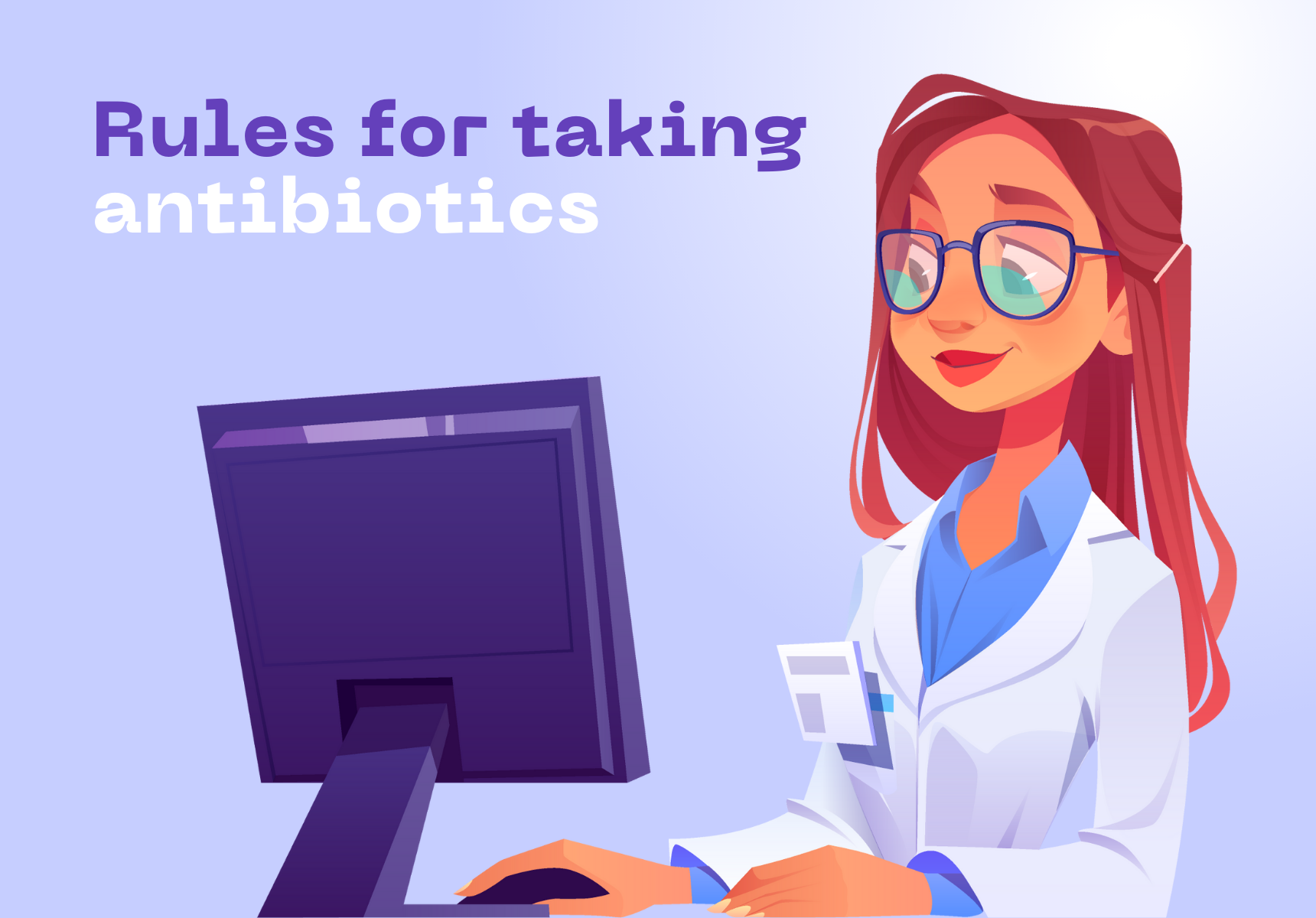Rules for Taking Antibiotics: Essential Guidelines for Safe and Effective Use
Antibacterial therapy is indispensable today. Each of us is faced with taking antibiotics to treat a certain disease. But few do it right. As it is because of misuse of antibiotics that side effects most often manifest.
The basic rule for taking antibiotics is to take antibiotics only when you can’t do without them.
The best antibiotic is the one that you don’t take. And this is probably the most important rule. There are no best antibiotics, just as there are no bad drugs. There are effective antibiotics, and there are ineffective ones. And this largely depends on you.
For example, you shouldn’t take antibiotics as a preventive measure for certain diseases, or to relieve symptoms of ARVI.
For common and most often viral diseases such as tonsillitis, pharyngitis and laryngitis, use symptomatic local therapy that helps fight throat discomfort, inflammation. If you start taking antibiotics every time, you will not only kill the microflora of the gastrointestinal tract, but also make antibiotics ineffective. Bacteria develop resistance to antibiotics very quickly, and this is a big problem.

And here are some rules that you should know.
Take the pills only with water
Tea, coffee, juices, and milk are not suitable for taking antibiotics. These drinks can speed up the excretion of active substances, reduce their bioavailability in the blood. Moreover, juices contain various acids that can interact with drugs. Side effects of antibiotics related with the gastrointestinal tract are most often caused just by the fact that they were taken with juice.
Should you take antibiotics before or after meals?
It is necessary to take into account the type of antibiotic, the recommendations of a doctor and the information specified in the instructions. Some drugs can only be taken on an empty stomach. Food can disrupt the absorption of substances in the intestines. On the contrary, some other antibiotics cause a stomach pain or other side effects when taken on an empty stomach.
It is unacceptable to take the medicine when you remember to do it, not paying attention to the drug instructions.
Do not stop taking the medicine as soon as you feel better
Even if the symptoms of the illness decrease and it seems that you can stop the treatment, continue taking the antibiotic, as indicated in the instructions.
If you take the drug not long enough, you may face two problems:
- Microorganisms can develop resistance to the drug as some of them were not killed;
- Surviving microorganisms, which may also get stronger, can resume the infectious process.
Do not take antibiotics with alcohol
The simultaneous use of all antibiotics (with no exceptions) with alcohol can lead to drowsiness, dizziness, nausea, vomiting and other side effects.
Besides, this interaction increases the toxicity of the antibiotic to the liver, which can cause severe complications.
Antibiotic dosage compliance is a guarantee of the effect
It is very dangerous to use drugs in small doses, as this increases the likelihood of bacteria resistance development. It is also dangerous to increase a dose, as this leads to overdose and side effects.
Fluconazole is a must if you start taking antibiotics
The use of antibiotics can cause candidiasis as a result of disruption of the microflora. Already 20 years ago, patients were prescribed antifungal drugs from the first day of treatment. Now it is enough to take 1 tablet of Fluconazole 150 mg every 3 days of antibiotic use.



